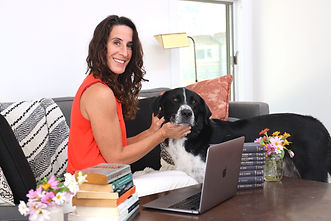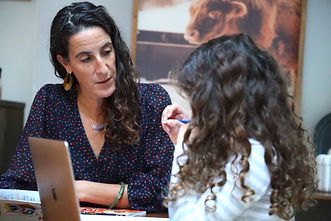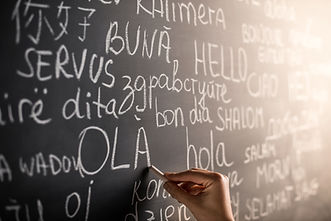
Elizabeth DiGirolamo
MA, ET
Founder
Growing up, I learned by example the importance of being an engaged and curious member of society. My family held a well-rounded education in high esteem, not only to ensure robust and rewarding professional opportunities, but also to develop the critical thinking skills required to be a productive member of a democratic society. My passions and interests are varied and abundant. In addition to being academically focused, I am a visual artist, a disciplined athlete (surfer, swimmer, skier, cyclist, equestrian, and high-school varsity athlete) and a dancer.
In college I combined my innate athleticism with my love of the arts and culture to pursue a double major in American Studies and Spanish with a minor in dance. My varied interests inspired me to explore the role that the visual and performing arts play in education, civic engagement, and the development of national culture.
After graduating from University of California, Santa Cruz in 2000, I worked as a school-based case manager in the Oakland and San Francisco public schools. There, I examined and addressed inequities in public education, identified students who demonstrated social and/or academic struggles, and coordinated services to meet these students’ needs to keep them from slipping through the cracks. I connected students and their families with targeted resources and support networks. I also partnered with community organizations to bring arts programming to students in schools where an arts curriculum wasn’t offered. My commitment to serving students and families coupled with my tenacity and creativity helped students learn to self advocate and celebrate their achievements in the face of adversity.
In 2008 I received an MA in Latin American Studies at the University of California, San Diego. My thesis combined interdisciplinary work in the social sciences, humanities, and theatre arts. I focused on the intersection of Cuban national arts and nation-state building during the reformation of the Cuban national identity that followed the 1959 revolution. I lived in Cuba for a year during which I conducted ethnographic research examining the role of arts education in the revolutionary national agenda. My research involved studying with national dance companies and analyzing historic ideologies of race.
Upon completing my MA, I returned to my career in education, this time as a classroom teacher, equity and inclusion facilitator, and student advisor at The Athenian School in Danville, CA. Having attended both a large urban public high school in Boston and a New England independent prep school in Milton MA, I chose to focus the next steps of my career in the independent school network where my creativity and autonomy were celebrated, and my work with families and students had farther reaching effects. I taught Spanish for close to a decade at Athenian as a middle school faculty member, teaching in both the middle and upper schools. My interdisciplinary background and focus were put to good use: Collaborating with other faculty, I helped to create interdisciplinary, student-centered academic programming that championed a growth mindset and experiential learning opportunities. In addition to my work in a world-language classroom and as part of the equity and inclusion team, I also designed and facilitated annual student service learning trips to Central America and the Caribbean. Lastly, I taught dance and performance in the theater arts program.
My departure from the classroom in 2016 was to pursue my current role as an educational therapist and executive function coach. I have since completed my certification in Educational Therapy to better support students' success in learning Spanish, writing, and executive function skills. My work with each student is tailored to meet their individual needs, help them understand how they learn best, and together celebrate their strengths for increased autonomy and independence. We work together to set concrete goals, step-by-step strategies to meet those goals, and methods for them to hold themselves accountable. Academic success is in large part understanding how to “chunk” tasks to use our strengths to our benefit while also identifying areas for growth. With the identification of strategic best practices to support each student’s learning profile, they can learn to self-advocate and develop a “road map” to reach their full potential empowered with confidence.






.png)